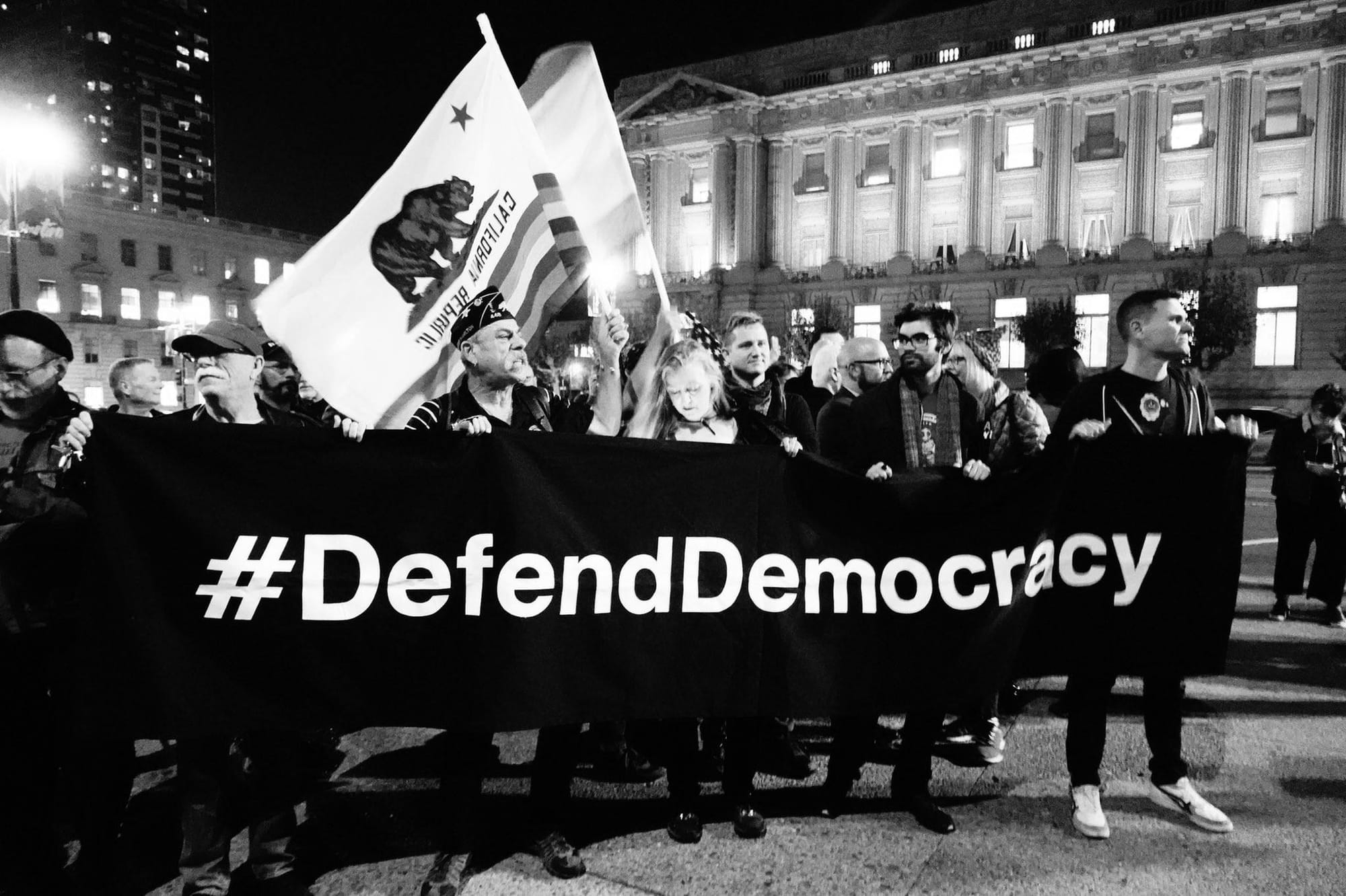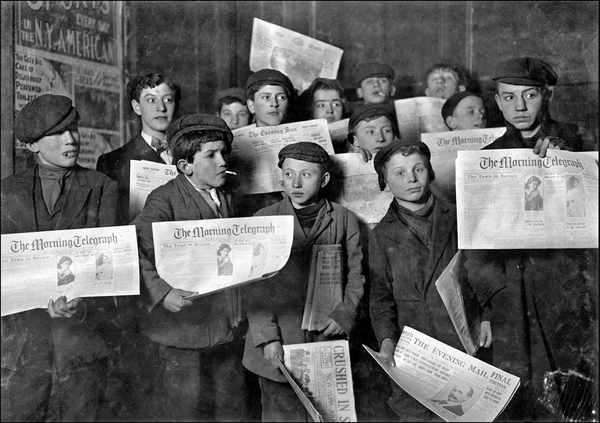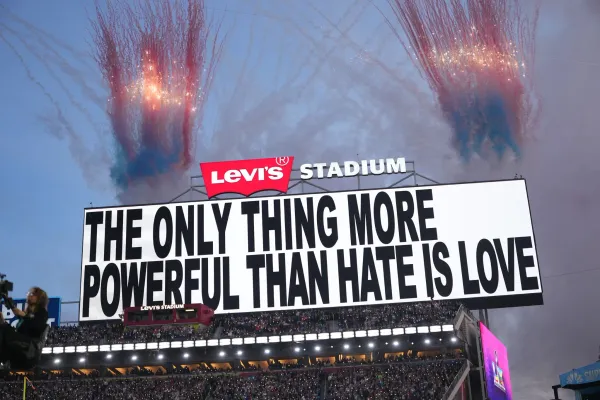How Big Should Your Tent Be?

It's striking to me that a lot of people want politics to be about their personal feelings, in which case they're not engaged in politics, though they may be engaged in the sabotage of politics. This is why I declared that "voting is a chess move, not a valentine," all those years ago, meaning you vote strategically. You work with the available options. You win by growing your coalition for elections, whether it's the election to put someone in office or the kind of votes that happen once anyone from a school board member to a senator is in office. This off-the-cuff essay was prompted by Senator Brian Schatz tweeting this comment, and the responses were dismaying; the one in this screenshot is a typical example.
I saw a lot of people go from what Schatz said – "MAGA people admitting Trump betrayed them" – to "those people are Nazis/hate me personally/have exactly these views and are not going to change their views." I'd read "MAGA people admitting Trump betrayed them" as "people who might be ready to change their views" and Schatz goes on to talk about winning people over, which you do not do by telling them how much you revile and loathe them.
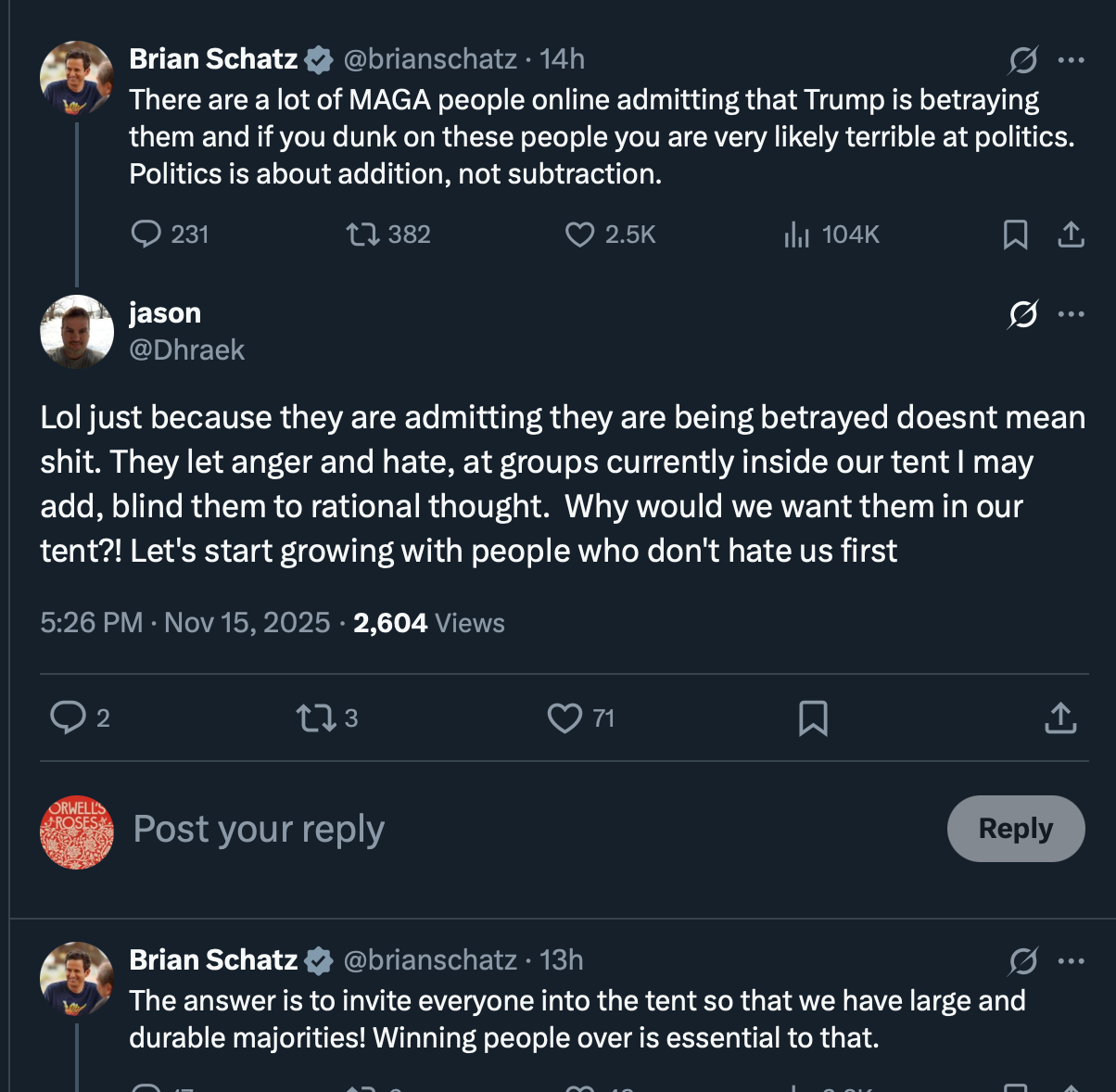
Simon Rosenberg at his Hopium Chronicles just wrote, "The entire electoral landscape has shifted between 7 and 12 points over the past year, and as I wrote yesterday Republicans are starting to panic about the erosion they are seeing." A whole lot of people are changing their views, in other words, and that's good news, and whatever can be done to encourage and solidify that shift is good for everything you care about.
That taking politics personally: you vote strategically not expressively; you're facing a ballot, not a Tinder/Grindr profile or a confessional, which I say because people often seem to speak as though they need their candidate to be someone who matches up to them in every way, even though they are only one of hundreds to hundreds of millions of voters, or see this as being about purity, aka choosing the candidate who is without sin or flaw, who they themselves will feel purer for voting for. I have long been amused by the 1991 Louisiana slogan when a corrupt politician was running against a Klansman, "vote for the crook; it's important"; you pick from the actual choices available to you, and the differences matter even if the choices are far from great. Happily, the crook won.
As for building the coalition, here are some more replies I found dismaying as strategy and attitude:
Spare me this sanctimony. Ridicule is what they need. If we could offer tougher love, they’d deserve it.
People will rejoin the country only when they’re too embarrassed to remain loyal to Trump. Social opprobrium is essential.
Right, it’s not about bringing these people to the other side, it’s about making them realize they shouldn’t be involved at all. If they thought the maga cult was good, their voice doesn’t matter and they shouldn’t use their voice ever again. MAGA won’t help them, dems don’t want them. Fuck off.
Preemptively running interference for nazis who are only now begrudgingly admitting that they got conned about pedophilia seems like terrible politics, but what do I know
I mean I've been infuriated by the men suggesting that we should support anti-choice candidates, not least because in the recent example (by Ezra Klein) it was for states in which abortion rights had been a winning issue; there are limits to what is acceptable, but this is not an essay about politicians. It's about voters, about who you just want to vote for your issues, candidates, or party. So the question is: are you there to take care of your feelings and put your moral superiority on parade, to punish people for their mistakes and sins (it amazes me how many people have granted themselves the right to punish strangers), or to build the coalition and win, if you're doing this publicly with ordinary voters, not just high-profile figures?
The huge victories in the November 4 election were, in many places, because people who voted for Trump the year before voted bluer so the shift has already happened, including with BIPOC voters who had temporarily shifted red, and I hope they feel welcome enough to stay blue (and I'm pretty sure no one shifted blue because someone berated them for their former positions). What was striking about the response to this tweet was the assumption that the people who might be shifting were all the cartoon of the worst longtime hardcore MAGA voter and that the correct attitude was to form an unwelcoming committee.
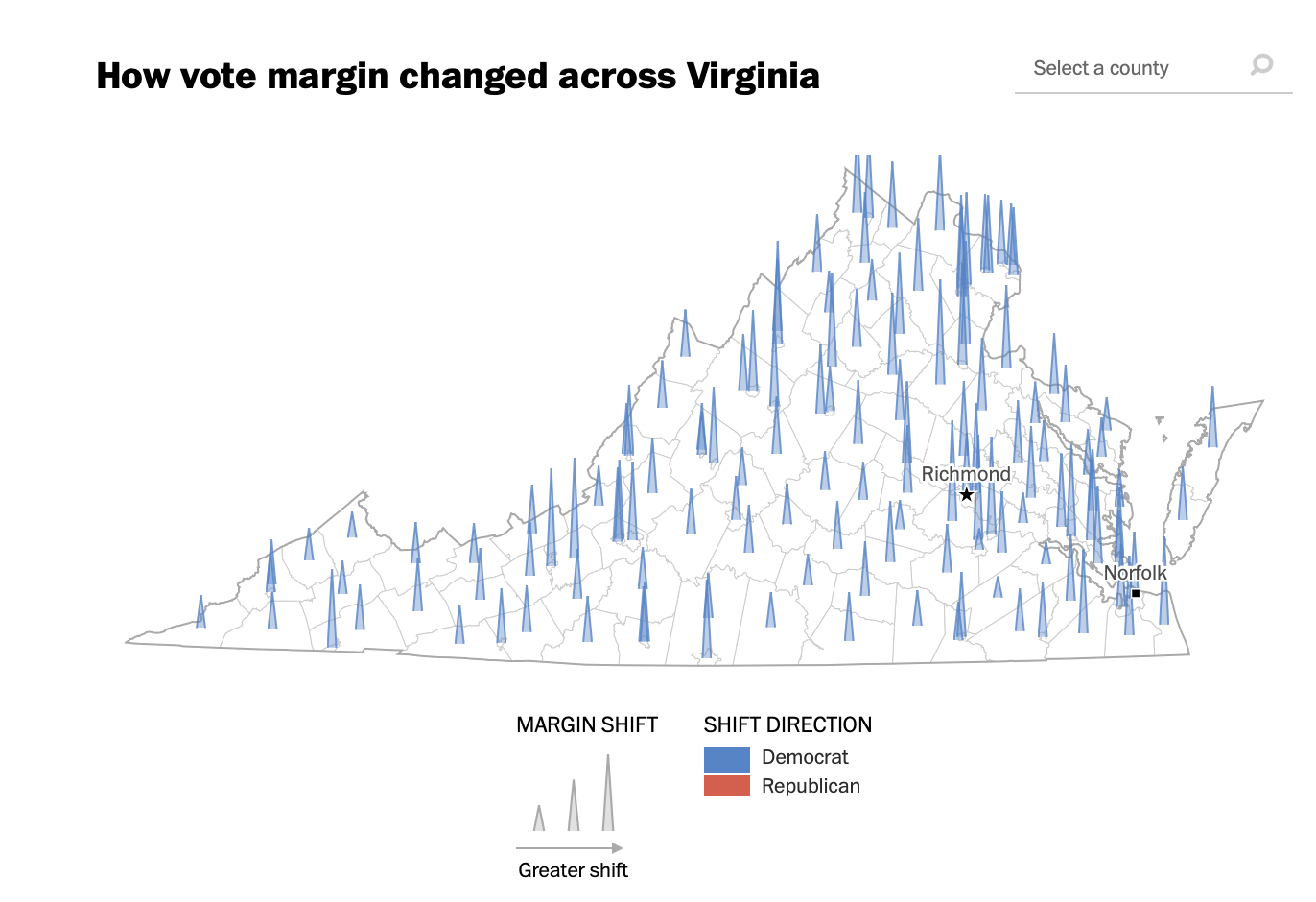
Anand Giridharadas wrote a book a few years ago called The Persuaders about how skilled outreach workers changed enough minds to win on marriage equality and other issues; in his description, "The lifeblood of any free society is persuasion: changing other people’s minds in order to change things. But America is suffering a crisis of faith in persuasion that is putting its democracy and the planet itself at risk. Americans increasingly write one another off instead of seeking to win one another over. Debates are framed in moralistic terms, with enemies battling the righteous. Movements for justice build barriers to entry, instead of on-ramps. Political parties focus on mobilizing the faithful rather than wooing the skeptical. And leaders who seek to forge coalitions are labeled sellouts."
Politics is not personal. When you do get out the vote work (and yeah, I've knocked some doors, mostly in Reno, since 2004), you are trying to get someone to vote for your candidate or bill, not find out if they have an impeccable moral history and like all the same things you do. I mean you do not knock on someone's door and say, well we're here to say you voted wrong earlier so please continue to do so because I came here to insult you, and I don't care if my side loses.
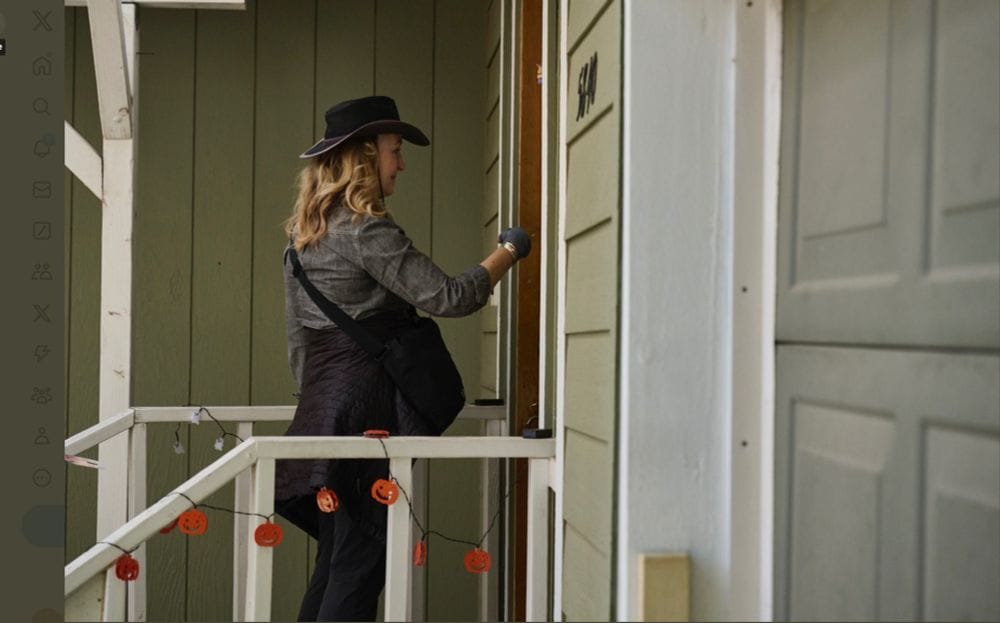
Likewise you build coalitions. Someone commented on the social-media draft of this essay, "In San Diego we just witnessed Catholic priests working side by side with LGBTQ folks and Planned Parenthood because a proposed ordinance would protect immigrants, trans folks, and people seeking reproductive health care from the brutal overreach of the Trump administration. It passed the City Council unanimously." A coalition is by definition made up of people who have something in common, not everything in common.
The right is very good at holding onto its base by telling them that we despise them; as journalist Paul Waldman wrote in 2018, "The right has a gigantic media apparatus that is devoted to convincing people that liberals disrespect them, plus a political party whose leaders all understand that that idea is key to their political project and so join in the chorus at every opportunity." He argued that there's not a lot liberals can do to change that, but he was writing in 2018, in a very different moment. In this time, when Trump voters are feeling disillusioned, betrayed, or brutally impacted by the Republican Party, as they watch it become more extreme, lawless, and destructive, and in many cases feel the impact themselves, there's an opportunity for something to shift. In fact there is a shift underway, which should benefit everything everywhere.
Making that conservative belief that progressives scorn them a public or face-to-face reality when there's a chance of changing people's minds or just accepting people who have changed their minds is not strategic. It throws away an opportunity for a shift. And yes, you can disagree about almost everything, and a lot of it is moral issues, but if there's no room for people to change their minds, learn, shift, improve, then there's no room for your coalition to grow.
One thing everyone should learn from the arc of a lot of news stories and from history itself is that people individually and collectively do learn and change their minds. We've seen it very recently with opinions about Israel and Gaza, with attitudes toward immigration, and other important issues. I've watched that happen over and over and over again, including on "our side" over the past dozen years as a lot of men learned a lot about gender politics as in how rape happens and who lies about it and how pervasive it is. Feminist activism in this period did a brilliant job in demolishing a lot of excuses, stereotypes, victim-blaming, and other misconceptions about rape that had been used to dismiss the reality and excuse the perpetrators. The great majority of us who've been around for decades have received educations about race, gender, sexual orientation, disability, immigration, indigenousness, colonialism, climate, environment and other things and almost certainly understand these things differently than we once did.
I'm delighted that Marjorie Taylor Greene, Lauren Boebert, and Thomas Massie are on board for the release of the Epstein files, and that doesn't change their record on other things or mean that I've invited them over for dinner. But this is not an essay about politicians but ordinary voters. I do hold elected officials to a higher standard than a lot of ordinary voters who are drowning in misinformation and/or living in communities where right-wing frames are the norm. Billions of dollars have been spent to create those conditions by the gun lobby, far-right foundations, owners of major media outlets, white evangelical churches, and all the rest. I couldn't hold elected office in part because I couldn't bear a job requiring being around people I disagree with so strongly, but that's part of the job, and a lot of elected officials I admire do it with grace. But I can at least not be an unwelcoming committee when there's a chance to shift the balance in our favor. It matters for everything, including the climate, immigrant rights, the rule of law, civil rights, and reversing the march toward authoritarianism.
